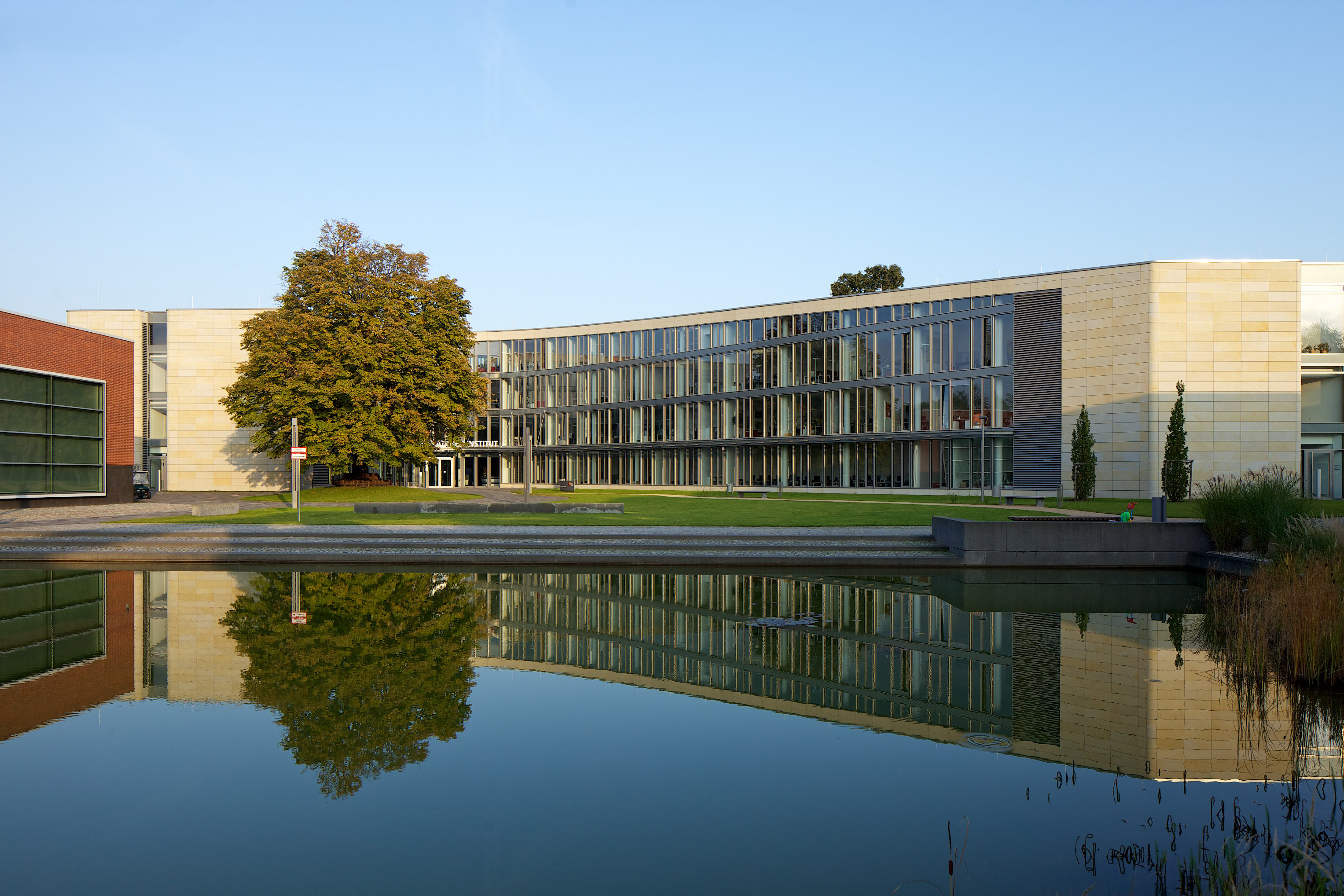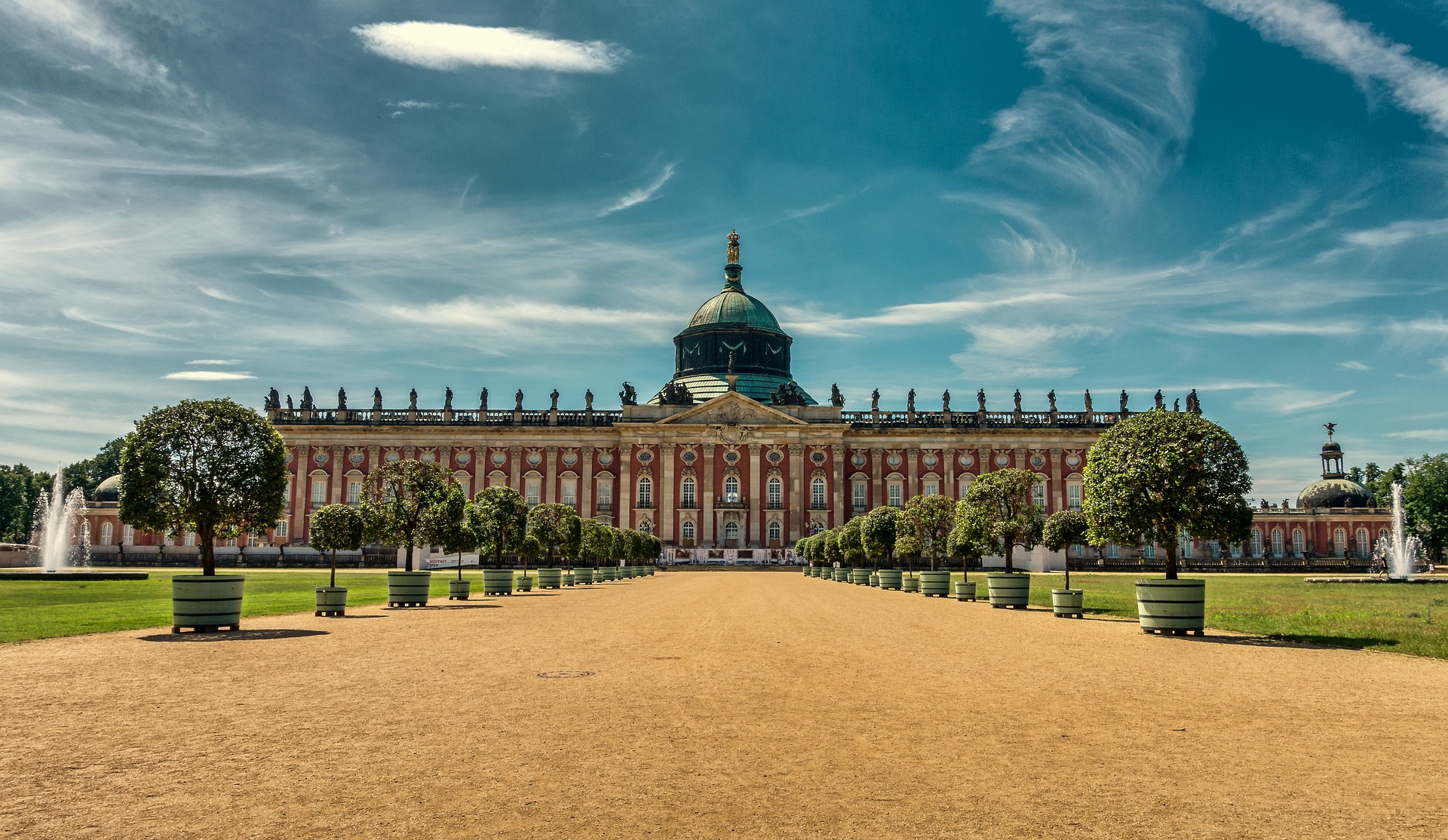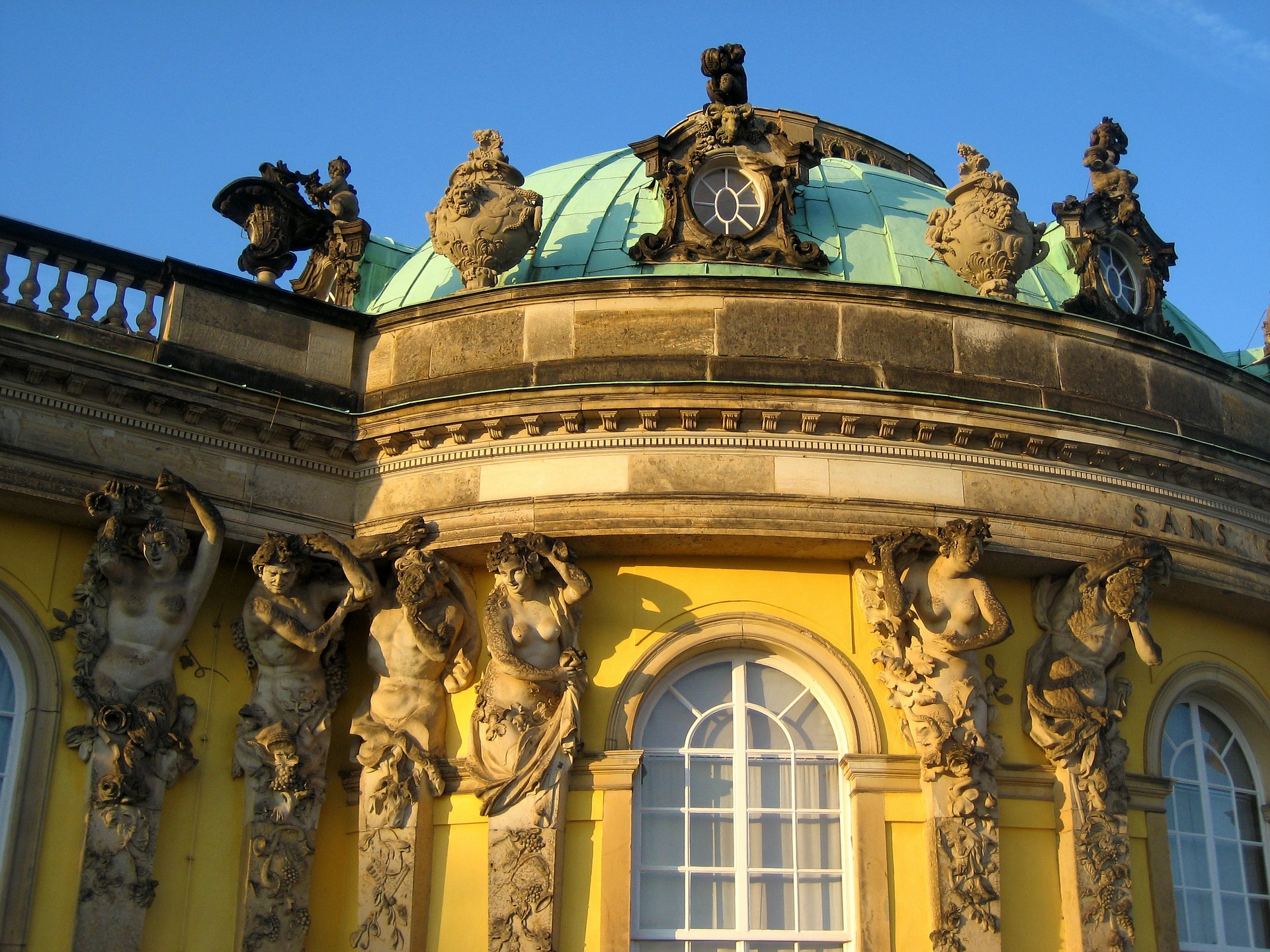About
The 12th Central-European Workshop on Services and their Composition (ZEUS 2020) will take place at the Hasso Plattner Institute at the University of Potsdam on February 20th and 21st, 2020.
Objectives
ZEUS focuses on the discussion of fresh ideas, the presentation of work in progress and the establishment of a scientific network between young researchers in the region.
Discuss fresh ideas
We offer a forum to discuss ideas at a level that is more work-in-progress than in a traditional conference. We thereby want to attract especially PhD students in the early phases of their work. Participants can get feedback from outside their group before submitting a paper to a conference. This makes ZEUS a great opportunity to discuss ideas.
Practice scientific work
We see the ZEUS workshop as an opportunity to practice the whole range of scientific work. We do not put the sole focus on the submitted papers themselves, but also on the presentations and the discussions during the workshop. To this end, we hand out a Best Presentation Award since 2010 at the end of the workshop to appreciate high quality presentations.
Establish contacts between young researchers in the region
We aim at bringing together young researchers who work in the same geographic and the same scientific region. This way, we would like to provide an opportunity for people to establish a scientific network that can be intensely used, including mutual visits at affordable costs. The workshop will serve as a platform to present current research ideas and research directions.
Call for Papers
Topics
The topics of the ZEUS workshop are centered around service-technology, which includes a rich set of facets. The purpose of analysis, synthesis, or simulation of service compositions are as welcome as practical evaluations, use-case-driven feasibility studies, or technology adoption models. ZEUS also calls for contributions in the field of Cloud Computing and RESTful services.
Topics include, but are not limited to:
- Service lifecycle: analysis, specification, modelling, testing, deployment, execution, monitoring, adaptation
- Patterns, languages, reference models, and model extensions
- Multi-view and multi-perspective engineering (SOA, choreographies, collaborations, artifact-centric systems)
- Formal methods, models, simulation, and verification
- System architectures for service composition
- RESTful services (design aspects, hypermedia, linked data, mashups, conversations)
- Microservices and Nanoservices (architecture, lifecycle, deployment, composition)
- Workflows, business processes, and business decisions (modelling, execution, analysis, mining, as well as papers on blockchains and BPM)
- Complex event processing (correlation, aggregation, transformation, monitoring, extraction)
- Security, compliance, and non-functional requirements and properties
- Cloud-enabled applications, migration to/from the Cloud, Cloud Integration, Serverless Computing
- Composable big data analytics pipelines
- Applications, frameworks, methods, tool demonstrations, and case studies
Submission
We are looking forward to three types of contributions for ZEUS. All papers must be submitted following the instructions at the ZEUS submission site handled by EasyChair: https://easychair.org/conferences/?conf=zeus2020
Results can be presented in talks or tool demonstrations. Submissions will be reviewed by at least three reviewers each in order to assure general fitness regarding content, readability, and scope and to give first feedback to the authors. Depending on novelty of the contribution, technical soundness of the approach, and clarity of the presentation, papers may be rejected or accepted as position papers or workshop papers.
Workshop papers
Workshop papers are “regular” contributions that describe original solutions in field of ZEUS. These papers must not exceed 6 pages (LNCS style). The 6 pages do not include references, so there is more space for your work. Workshop papers are reviewed according to the call for papers. Accepted papers shall be included in the proceedings and presented at the workshop.
Position papers
Position papers should draft a new idea and put it up for discussion at the workshop. Position papers should only be an extended abstract and must not exceed 3 pages (LNCS style) without references. Position papers are briefly reviewed according to the call for papers. The main idea and the relation to existing work should be contained. Accepted papers shall be included in the proceedings. Position papers allow authors to get early feedback during the workshop, but should not disallow extending the paper to a full paper submitted to a first class conference – even if the position paper is referenced and the delta is explained properly.
Tool demonstrations
ZEUS also offers a forum to demonstrate implementations of techniques and algorithms in the area of the aforementioned topics to get early feedback and provide interesting insights for the audience. Tool demonstrators are asked to submit a demo script of no more than 3 pages (LNCS style) without references which states how the tool is linked to the call for papers and what to expect during the demonstration.
Important Dates
Submission: January 12, 2020 January 19, 2020Notification: February 7, 2020Camera Ready (Pre-Proceedings) version: February 15, 2020Registration: February 14, 2020- Workshop: February 20/21, 2020
- Post-workshop proceedings version: March 16, 2020
Submission Guidelines
Template: LNCS Style http://latextemplates.github.io/LNCS/
Workshop Paper: 6 pages excluding references
Position Paper: 3 pages excluding references
Tool Demonstration: 3 pages excluding references
Program & Registration
Proceedings
The first version of the proceedings can be downloaded here:
Program
- ⸺ Thursday, 20.02
- 09:00–09:30 Registration
- 09:30–09:45 Welcome
- 09:45–10:45 Session 1: Process Analytics
- Towards the Discovery of Object-Aware Processes
- Towards a Framework for Context-Aware Resource Behaviour Analysis
- 10:45–11:15 Coffee Break
- 11:15–12:30 Keynote: The Dream of Anonymous Data
- 12:30–13:30 Lunch
- 13:30–15:00 Session 2: Business Process Modeling
- Incorporating Organizational Aspects into Fragment-based Case Management
- Managing Consent in Workflows under GDPR
- BPMN in the Wild: BPMN on GitHub.com
- 16:15–17:45 Social Event: Potsdam City Tour (Eingang Freundschaftsinsel)
- 18:00 ZEUS Dinner
- ⸺ Friday, 21.02
- 09:30–10:45 Keynote: Common Pitfalls in Microservice Integration and how to Avoid Them
- 10:45–11:15 Coffee Break
- 11:15–12:15 Session 3: Cloud and Serverless Computing
- Auto-scaling Policies to Adapt the Application Deployment in Kubernetes
- When to use FaaS? - Influencing factors for and against using serverless functions
- 12:30–13:30 Lunch
- 13:30–14:30 Session 4: Miscellaneous
- Managing Social Challenges in Cross-Organizational Event-Based Systems
- The Ultimate Comparison Framework
- 14:30–14:45 Closing Session
- 15:00–17:00 Post-Workshop Proceeding Preparation
- 19:00–21:00 Steering Committee Planning 2021
Keynotes
Research Keynote: Prof. Dr. Florian Tschorsch, TU Berlin
The Dream of Anonymous Data
Abstract: The digital transformation is data driven. While we expect to extract valuable information from data, the use also raises serious privacy concerns. In this talk, I will discuss research results in data anonymization and privacy-preserving data analysis. In particular, I will show how to quantify the re-identification risk and describe how anonymization methods fail to protect privacy. This motivates the development of novel approaches of data collection and means of protection, which I will cover in the second part of this talk. I will conclude by pointing to future research directions.
Industry Keynote: Niall Deehan, Camunda
Common Pitfalls in Microservice Integration and how to Avoid Them
Abstract: Integrating microservices and taming distributed systems is hard. In this talk I will present three challenges we observed in real-life projects and discuss how to avoid them.
- Communication is complex. With everything being distributed failures are normal so you need sophisticated failure handling strategies (e.g. stateful retry).
- Asynchronicity requires you to handle timeouts. This is not only about milliseconds, systems get much more resilient when you can wait for minutes, hours or even longer.
- Distributed transactions cannot simply be delegated to protocols like XA. So you need to solve the requirement to retain consistency in case of failures.
Social Event & Dinner
Potsdam City Tour
On Thursday afternoon, all participants are invited to join a guided tour to Potsdam’s city center. Learn interesting facts about Potsdam in the past and the present. We will start at 16:15 at the entrance to the Freundschaftsinsel and finish around 18:00 on Luisenplatz; just in time for our ZEUS dinner.
ZEUS Dinner
This year’s ZEUS dinner will take place at the Alter Stadtwächter close to the Luisenplatz in Potsdam.
Registration
The registration period has passed. If you have missed the registration, but you still want to attend, please contact the local organizers directly.
Venue
HPI Campus
ZEUS 2020 will take place at the Hasso Plattner Institute (HPI) in Potsdam.
Situated directly next to the Griebnitzsee metropolitan train (S-Bahn) station, the Hasso Plattner Institute in Potsdam-Griebnitzsee is located in close proximity to Berlin and Potsdam’s city center.

You can reach the HPI via plane, train, and car.
The lake-side campus is an inspiring oasis of greenery set in beautifully tended grounds. The main buildings and the auditorium building are located at Prof.-Dr.-Helmert-Straße 2-3, Potsdam.
Potsdam
Potsdam is the capital of the federate state Brandenburg. The historic city was the residence of the Prussian kings and the German Kaiser. Various palaces and parks, among them Park Sanssouci – Germany’s largest World Heritage Site – show the impressive past of Potsdam. Today Potsdam is a hot-spot for research and science harboring more than 30 different research institutes from various disciplines. Being surrounded by more than 20 lakes and rivers and being close to Berlin, Potsdam offers a lot for both, the nature lovers and the city lovers. You can read more about our beautiful city on Wikipedia, Wikivoyage, and other online resources.


Organization
The workshop is hosted by the Business Process Technology group at Hasso Plattner Institute.
Local organizers
The organization of the workshop on site is coordinated by members of the Business Process Technoloy group:
- Stephan Haarmann stephan.haarmann(at)hpi.de
- Jan Ladleif
- Kiarash Diba
- Sven Ihde
- Simon Remy
You can reach the local organizers here:
Business Process Technology
Hasso Plattner Institut
Prof.-Dr.-Helmert-Str. 2-3
D-14482 Potsdam
Tel: 0331-5509-193
Sponsor
Steering Committee
- Nico Herzberg, SAP SE, Germany
- Oliver Kopp, JabRef, Germany
- Stefan Kolb, JabRef, Germany
- Johannes Manner, University of Bamberg, Germany
- Stephan Haarmann, Hasso Plattner Institute, University of Potsdam, Germany
Program Chair
Johannes Manner, University of Bamberg, Germany
Program Committee
- Achim Brucker
- Adriatik Nikaj
- Christian Sturm
- Christoph Hochreiner
- Daniel Lübke
- Dirk Fahland
- Felix Baumann
- Georg Grossmann
- Han van der Aa
- Henrik Leopold
- Jan Ladleif
- Jan Sürmeli
- Joel Scheuner
- Joerg Lenhard
- Johannes Kässinger
- Justus Bogner
- Linus Dietz
- Luise Pufahl
- Lukas Harzenetter
- Matteo Nardelli
- Matthias Geiger
- Michael Borkowski
- Michael Wurster
- Pascal Hirmer
- Robin Lichtenthaeler
- Saimir Bala
- Sankalita Mandal
- Sebastian Böhm
- Simon Harrer
- Stefan Schulte
- Stefan Winzinger
- Sven Ihde
- Tammo van Lessen
- Thomas Heinze
Contact
E-mail: zeus2020@easychair.org
